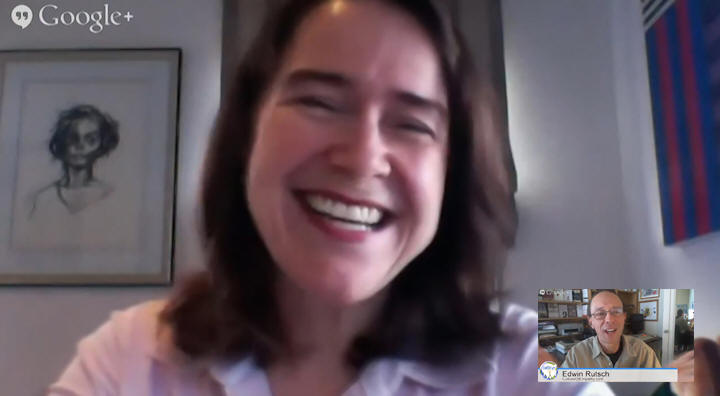|
|
|
Culture of Empathy Builder: Fincina Hopgood
Links
Empathy and Portrayals of Mental Illness on Screen: Fincina Hopgood and Edwin Rutsch
(Video Transcriptions: If you would like to take empathic action and create a transcription of this video, check the volunteers page. The transcriptions will make it easier for other viewers to quickly see the content of this video.)
Try Walking in My Shoes: Empathy and Portrayals of Mental Illness on Screen SYMPOSIUM (PDF)Date: 13 - 14 February 2014 Location: The Dax Centre, Kenneth Myer Building, The University of Melbourne. "A key theme of the symposium is the emotion of empathy. Speakers are invited to examine the ways in which the viewer’s empathy is elicited (or not) by the portrayals of mental illness on screen. In addressing this theme, paper/workshop topics may include, but are not limited to:..."
"One particular emotion that film and television can elicit is empathy: the ability to share the emotions of another person, to imaginatively put yourself in their shoes. Screen media can tap into our capacity for empathy through a variety of techniques: for example, music can express a character’s emotional state; an actor can wordlessly convey their character’s emotions through facial expressions or gestures; a screenplay may use voice-over narration to give the audience privileged access to a character’s internal thoughts; or the director may externalise a character’s emotions through their choices of lighting and camera shots (eg. handheld ‘shaky’ camera work that mimics the character’s agitated emotional state). The significance of this empathetic relationship between the character on screen and the viewer lies in its ability to help us see the world from a perspective that may be different from our own. In this way, empathy provides insight and can lead to greater understanding.
Try Walking In My Shoes: Fincina
Hopgood and Patricia di Risio in Conversation "In February 2014, film scholars Fincina Hopgood and Patricia di Risio co-convened "Try Walking in My Shoes: Empathy and Portrayals of Mental Illness on Screen" in conjunction with the School of Culture of Communication at The University of Melbourne, The ARC Centre of Excellence for the History of Emotions and The Dax Centre. Here "In Conversation" they discuss their motivations for mounting this rich, inter-disciplinary symposium and why empathy is such a crucial emotion to explore in relation to mental illness." |
|
||||







